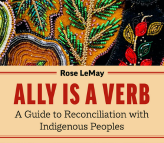Hill Times January 25, 2021
My family watched the inauguration of U.S. President Joe Biden. We shared with millions of people the awe and relief that grace and leadership has returned to the White House. Tears were shed to witness so many BIPOC on podiums that day and evening. And then my daughter asked me, “why doesn’t our prime minister make real change, like an executive order against systemic racism?”
Daughter, that’s a complicated question. We don’t do executive orders, we do orders in council. We make key decisions through cabinet via departmental proposals. We do ministerial mandate letters. And let’s not forget that Canada does have laws and policies and expectations on workplace inclusion. Just this month, laws changed to be even more stringent against discrimination and harassment in the workplace. And let’s celebrate that the COVID-19 vaccines are prioritizing First Nations on reserve first because the evidence on risk demands it.
I could have given her these answers, but my daughter was not asking about the legalities. She was asking why so little has changed in Canada on racism against Indigenous peoples, why our leaders are quiet on systemic racism, and why her mother has to continue to do this work?
I didn’t have a good response.
Canada has taken many steps to reduce racism in the workplace because the workplace is within the reach of the law— except so is the RCMP with all sorts of documented racism issues and nothing has been done there. We have laws against racism—except Indigenous peoples still die in hospitals due to racism without much consequence for health leaders and systems. Deputy ministers and assistant deputy ministers hold up their copies of the TRC Calls to Action— and then spend millions fighting against releasing the hordes of documents on the horrible abuse at the infamous St. Anne’s residential school to hide the truth. Canada vaunts its human rights voice on the world stage—but never called out the demagogue Donald Trump who put kids in cages for political gain. This federal government talks about reconciliation— but has no plan after five years. This Liberal Party vaunted its commitment to Indigenous peoples, but in one of the whitest cabinets recently, there is only one Indigenous cabinet minister.
I came up with a response for my daughter and I don’t like the response. The answer is the prime minister and most premiers will not take political risk to protect those who need it most. Some leaders don’t believe it’s really a problem, some don’t see it as an urgent enough issue, and some benefit from donors who don’t want the issue resolved.
Against all wisdom, there’s talk of a federal election in the air. So, if political parties really mean it when they say they care about reconciliation and racial safety for all Canadians, they would put at least 30 per cent BIPOC candidates on tickets, put real money in platforms for Indigenous economic inclusion, enforce consequences for racism in health, and finally, publicly call out leaders who refuse to fight against systemic racism against Indigenous Canadians.
But don’t hold your breath for that.
CEOs and board members of non-profits, health, municipal governments and private sectors, here’s your chance. Read the New Federal Workplace Harassment and Violence Prevention Regulations again which came into effect this month, and choose to implement it for racism too. Not surprisingly the federal government did not list racism in this revision as strongly as sexual harassment, but that doesn’t mean that you shouldn’t. Do better than the feds. This is what reconciliation looks like in your organization—implementing stringent anti-racism procedures and policies. Consider this your executive order, your legacy.
